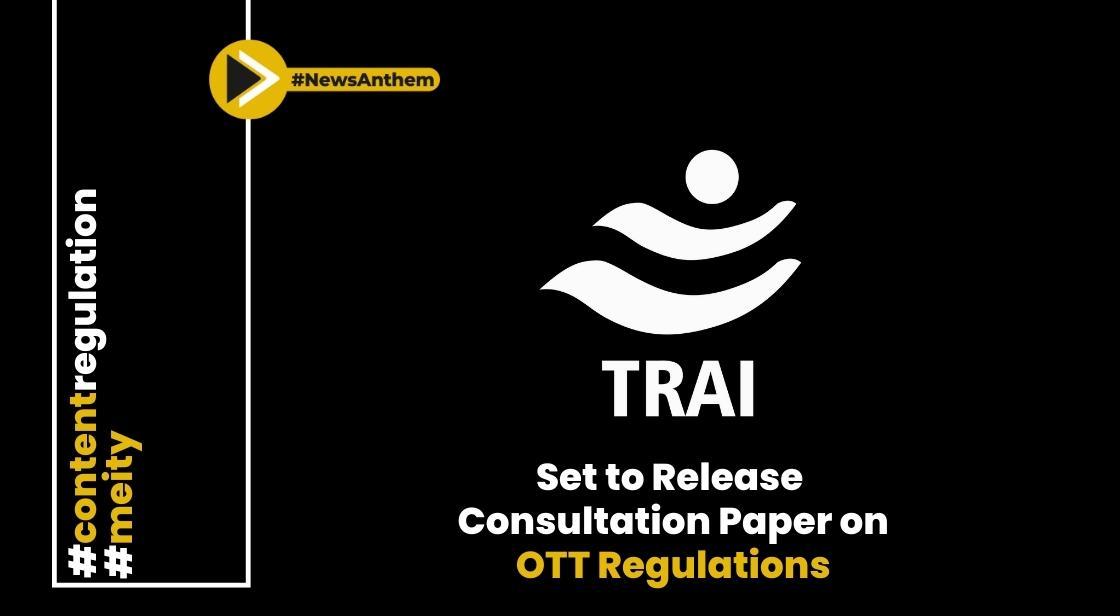Trai Set to Release Consultation Paper on OTT Regulations

News Synopsis
Trai's Consultation Paper to Address OTT Regulations
The Telecom Regulatory Authority of India (Trai) is gearing up to release a significant consultation paper that will delve into the realm of regulations for over-the-top (OTT) video platforms.
This development comes amid growing concerns and discussions about the OTT industry's dynamics and its relationship with traditional broadcasting.
OTT Regulation Landscape
OTT content regulation currently falls within the purview of the Ministry of Information and Broadcasting (MIB), while the Ministry of Electronics and Information Technology (MeitY) oversees the carriage aspect of these platforms.
Trai is entrusted with examining and addressing these issues, with a particular focus on creating a balanced regulatory framework.
Key Issues to Be Tackled
The consultation paper is expected to address critical issues that have been the subject of extensive debate. One major concern pertains to the price parity between OTT video platforms and traditional broadcasting methods like cable TV and DTH services.
The goal is to establish equitable pricing structures that do not create a lopsided competition landscape.
Another vital aspect under consideration is the application of content regulations for television on OTT platforms. Presently, broadcasting companies are bound by numerous rules and regulations, whereas OTT platforms enjoy more flexibility.
The consultation paper is likely to define boundaries for content and moderation in the OTT domain.
Leveling the Playing Field
The consultation process represents the initial step in formulating comprehensive rules and regulations for the OTT segment. This move comes as the OTT industry experiences intense competition, with over 40 platforms vying for market share in India.
Various stakeholders within the telecom and broadcasting sectors have called for measures to ensure a level playing field between traditional broadcasting and the OTT sector.
Trai's Recent Regulatory Changes
In a related development, Trai recently reduced the audit compliance frequency for licensed service areas from four times a year to once a year. However, this change still covers essential areas, including tariff offerings related to international roaming. These adjustments align with Trai's commitment to maintaining high-quality services for consumers.
As Trai prepares to issue its consultation paper, the OTT industry and related stakeholders await the outcome of these deliberations, which are poised to shape the future of OTT regulations in India.
Here are some additional details about the proposed consultation paper:
-
The paper is expected to be floated in the coming weeks.
-
It will be open for public comments for a period of 30 days.
-
The paper is expected to address a number of issues, including:
-
Price parity between OTT and traditional platforms: OTT platforms are currently not subject to the same price regulations as traditional platforms, such as cable TV and DTH services. This has led to concerns that OTT platforms are undercutting traditional platforms and putting them at a competitive disadvantage.
-
Application of content regulations for TV on OTT platforms: Currently, OTT platforms are not subject to the same content regulations as traditional TV channels. This has led to concerns that OTT platforms are broadcasting content that is not suitable for all audiences.
-
Red lines for content and moderation: The consultation paper is expected to specify some red lines when it comes to content and moderation on OTT platforms. This could include things like restrictions on hate speech, child sexual abuse content, and violent content.
-
The consultation paper is a significant step in the process of regulating OTT platforms in India. It is important that all stakeholders, including OTT platforms, content creators, and consumers, participate in the consultation process and make their views known.
The Telecom Regulatory Authority of India (TRAI) is an independent regulatory body set up by the Government of India under the Telecom Regulatory Authority of India Act, 1997. It is responsible for regulating the telecommunications sector in India.
TRAI's functions include:
-
Granting licenses to telecom service providers
-
Setting tariffs for telecom services
-
Monitoring the quality of telecom services
-
Ensuring compliance with telecom regulations
-
Promoting competition in the telecom sector
-
Protecting the interests of consumers
TRAI is headed by a chairman, who is appointed by the government. The chairman is assisted by a number of members, who are also appointed by the government. TRAI has its headquarters in New Delhi and has regional offices in all major cities in India.
TRAI is an important regulator in the Indian economy. It plays a vital role in ensuring that the telecom sector is well-regulated and that consumers get the best possible services.
You May Like









